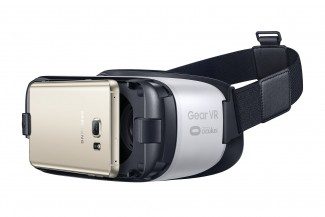Meta dropped a major announcement yesterday, saying it plans to allow select partners to build third-party headsets that will run Horizon OS (formerly Quest OS). The news is prompting significant discussion within the XR industry, including from Oculus founder Palmer Luckey.
Here’s a quick primer for those of you who are newer to XR industry. What eventually became the ‘Quest’ headset and ‘Horizon OS’ platform from Meta started when the company bought a VR startup called Oculus back in 2014. Oculus was founded by Palmer Luckey, who was a prominent voice in the XR industry before ultimately being pushed out of Facebook over divisive politics. Although he went on to found a military defense technology company after his ousting, Luckey remains an influential voice within the XR industry—even if he did build a headset designed to kill the wearer.
So that brings us to this week’s Horizon OS news; the biggest move that Meta has made with its XR strategy in years. The company says it will allow select partners to build their own headsets which will run Horizon OS, with the hope that the range of headset choices will expand while sharing a common software platform for users and developers. Although it’s still far from this vision, this is Meta’s first major step toward its stated goal of wanting to be the ‘Android of XR’.
What does Oculus founder Palmer Luckey make of the news? Well, it’s an ‘I told you so’ moment a decade in the making.
Luckey tells Road to VR that opening up the platform to third-party headset makers was “explicitly our plan over ten years ago, but Facebook would later pivot Oculus hard away from it.”
He points to an interview from 2014 in which Brendan Iribe, CEO of Oculus at the time, reasoned, “if we do want to get a billion people on virtual reality, which is our goal, we’re not going to sell 1 billion pairs of glasses ourselves. We are openly talking to any kind of partner that wants to jump into VR, and there’s a lot of interest right now.”

And the company did in fact pursue that strategy. In 2015 Oculus teamed up with Samsung which released Gear VR, a headset ‘shell’ which worked by slotting a Samsung phone into the device to function as the brains and display of the headset. The headset’s software platform, however, was made by Oculus. Samsung released several iterations of Gear VR over the years but ultimately the effort didn’t find product-market fit, and Samsung discontinued the devices.
Today Luckey says, “I always strongly believed that Oculus should endeavor to build a technology platform that powered/supported every headset, even competitors like [HTC] Vive. […] this was always the correct strategy. Hopefully it isn’t too late.”







